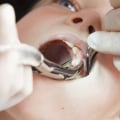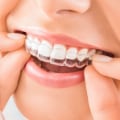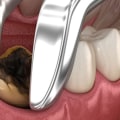If you have experienced pain and discomfort in your jaw joint, you may be suffering from temporomandibular joint (TMJ) dysfunction. This condition is caused by misalignment of the teeth, jaw joints, and chewing muscles, and can lead to long-term problems and a lower quality of life. Fortunately, there are several home remedies that can help relieve the pain and discomfort associated with TMJ. One of the most important elements of treating TMJ is to identify the cause of the misalignment.
This can be done by informing your dentist or doctor about any unexpected symptoms, such as scalp discomfort, tooth pain, ringing in the ears, or tingling in your fingers. Additionally, it is important to note if you feel pain when you chew or yawn. Once the cause of the misalignment has been identified, there are several home remedies that can help relieve the pain and discomfort associated with TMJ. Eating soft foods such as mashed potatoes and apple puree can help reduce jaw stiffness and pain.
Additionally, avoiding sticky or chewy foods and chewing gum can help reduce symptoms. Jaw lifts and other facial exercises can also help relieve symptoms of temporomandibular joint disease. Using a bite protector (also known as a stability splint) can also help reduce pain associated with TMJ. Bite protectors are usually made of plastic and are designed to fit both the upper and lower teeth to prevent them from coming into contact.
However, it is important to use bite protectors sparingly as they can increase pain if used too often. In addition to these home remedies, it is important to practice good oral hygiene to prevent further complications from TMJ. The American Temporomandibular Association recommends routine maintenance of teeth and gums to reduce the risk of dental diseases and the need for invasive dental treatments. Acupuncture can also be used to treat TMJ pain.
An acupuncturist will inject needles around the jaw and in other regions to relieve pain and improve jaw function. Massaging the TMJ joint throughout the day may also help relax the jaw muscles and ease pain. Finally, taking anti-inflammatory medications such as ibuprofen or omega-3 fatty acids may also help reduce inflammation associated with TMJ. It is important to keep track of your symptoms while undergoing these treatments, and contact your doctor right away if your symptoms worsen or if you develop new symptoms.






